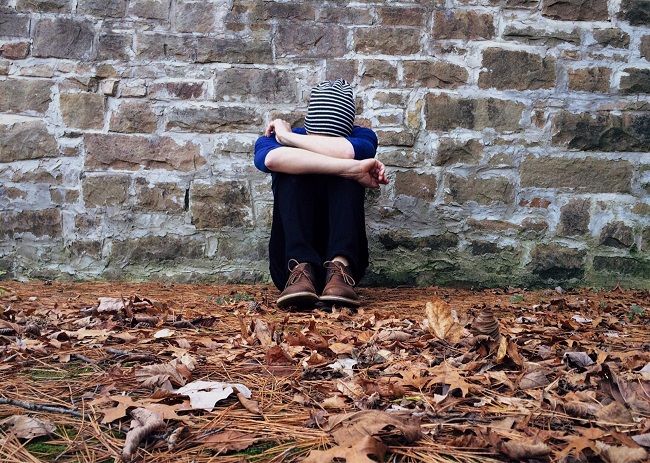There has been a great deal in the allergy press about bullying recently, far more so in the US than here in the UK. Elizabeth Goldenburg at OneSpot Allergy has written a couple of blog posts about this including:
Peanut Allergic Kindergarten Student Left At Curb By School Bus Driver Finds Justice
Food Allergy Bullying: What Schools Need To Do

This isn’t just a bit of fun or a joke – someone could die as the result of a misplaced bout of bullying.
There is a product in the US called Sunbutter which is a peanut free alternative to peanut butter. There is also research being done to create an allergen free peanut. Will these things help? When people can be allergic to such a diverse number of different foods it’s impossible to make the world a safe place for everyone, but perhaps we can eliminate problems from the most dangerous of allergies. How would you know though, by looking and smelling, which was the real peanut and which the allergen free one? I still feel avoidance is the only safe strategy.
Have you ever been bullied or discriminated against because of your allergies?
I asked myself this question and I thought, well, no. But it doesn’t have to be vicious and aggressive bullying. It seems to me that there is a far more quiet and silent way of discriminating and isolating those with food allergies.
Imagine…
- The child who is no longer invited to parties because his friend’s parents are terrified to cater for them.
- The couple who are no longer invited to dinner parties – who wants to cater for those fussy gluten free and allergic people with all their questions and demands?
- Go to any seminar, launch party, or dinner party and you have serious life threatening allergies you will probably not be safe eating, unless you’ve phoned earlier, checked there will be something, checked again, checked again…
- Those throw away comments, “Oh you’re the difficult one.!” or “Here comes the woman with all the allergies.” may seem like they’re funny at the time, but they’re not.
- The glazed looks in restaurants… “yes I’m sure that’s OK.” How many people eat stuff after a waitress has replied with such a glib and unhelpful response? How many people really, truly understand what’s involved in engineering a safe eating out experience?”
- The woman who is too frightened to eat out after many anaphylactic attacks.
- Having to cook every meal you eat yourself, from scratch, because you can’t eat processed food or ready meals – having a meal cooked for you is such a treat I can tell you.
You can’t tell someone has food allergies from looking at them so it’s not the same as racial discrimination but it doesn’t take long to find out someone has allergies. You can tell someone has eczema and asthma quite easily, if you see the puffer being used, or the signs of eczema on their skin. Do you think that person may not be looking after themselves? That they should see their doctor? Get some new medication? Stop scratching?
Allergies at school
Having allergies is especially visible at school where a child with allergies may have to sit separately to eat their lunch or bring in their own safe treats.
In any good school everyone should be aware someone has a life threatening allergy, it’s just as important as knowing a child has any other life threatening condition such as diabetes. Every child should be included, not excluded from activities. Allergies are not a choice, they’re a condition that is affecting more and more people every year.
Allergies in the workplace
What about in the workplace? Have you ever had to mop up spilt milk then scrub your hands and pray you don’t have a reaction? Ever sat next to someone munching peanuts and had to leave the room? What do you do when a colleague offers you a cup of tea? Do you accept? Do you trust that they will not get milk in your tea by stirring with the same spoon or using a dirty mug, or pouring milk into other mugs too close to yours? Can you expect your colleagues to be as vigilant as you are at home in the workplace? Or do you distance yourself and decline, making your own coffee when the kitchen is empty. Sounds kind of lonely doesn’t it?
Thanks to the Gluten Free Guerillas for sharing this article on the Forbes website. “Food Allergies in the Workplace are Not Always What They Seem”. It’s a very insightful piece about understanding your employees behaviour. Turning down lunch with the team, after work drinks and not joining in with the Friday night curry doesn’t necessarily mean they are not a team player or don’t want to join in. Ask them why, talk to them. Why don’t they eat the office biscuits or cake when it’s someone’s birthday? They might have a peanut or dairy allergy or be a coeliac.
I have had an anaphylactic attack after eating out with work colleagues. It was a surprise thing, sprung on us as a reward for working hard and I just tried to be careful and stuck to the salads. Not a good idea when the salads have pesto on them if you have a nut allergy. I was so ill, and my colleagues, not really understanding the danger I was in, left me in my room without calling 999. I didn’t call either. I just lay in a cold bath shivering with hives all over my body, sobbing and alone in a hotel bathroom, unable to speak with my throat closing up, my eyes and nose streaming. My inhaler not working.
The next day amazingly I was expected to work a full day having had no sleep, clearly having had problems in the night, my face was still swollen and puffy. I was still shaken and feeling dizzy. Did my boss ask me if I was OK? No. I was too scared to explain and appear pathetic or weak, so I suffered in silence and spent the next two days in bed ill.
So when I didn’t join the others for meals and when we organised seminars and I had my own food since I couldn’t eat the ordered in spread from wherever it came from, that was fine with me. I was quite happy bringing in my own food. I didn’t and still don’t want any special treatment, but I don’t want to be judged for my behaviour when it’s the only way I can guarantee my safety.
Working from home works a treat for me. I don’t have to worry about what anyone else is eating or leaving on the worktop. I am also very lucky to have many many kind friends and family who always go the extra mile to make sure I’m happy, have something to eat that’s safe, and don’t make me feel bad about checking stuff. You all know who you are – thank you!
Do you feel you get judged by others when they find out you have allergies? Are you discriminated against? or do you feel your child is unfairly treated or excluded at school? We still have a long way to go raise awarness that we just want to be treated with respect.
You might also be interested in some home remedies for allergies: http://www.home-remedies-for-you.com/remedy/Allergies.html












I agree with you! People should not treat allergic people less from the other. That is why the children at school or people at work must be educated about this thing. We people that do not experience allergy must be sensitive for those who suffer from allergy symptoms. Instead of condemning them on their state, let us help.
Thanks Juliet! You can help. Am I right in thinking you don’t have allergies? Lucky you but thanks for positive comment and support.
My daughter has anaphylaxis which is brought on my airborne allergens. Since she started high school in September she has been frequently ill as she has been reacting to something in her new school environment. Her school were vaguely interested in her allergies but once her level of attendance dropped to such that the Ed Welfare Officer would need to be notified they took a keen interest. I have been into school several times and met with her Head of Year, the School Nurse and the Educational Welfare Officer who have all been extremely understanding and helpful. The staff now ensure that she doesn’t sit next to anyone who has pets (which she felt too embarrassed to explain about), they have assigned her a mentor (who doesn’t have any pets or wear wool) who makes sure that she catches up on work she has missed when she’s off sick. All of the members of staff in the school have been briefed several times and she has a close group of friends who know the signs to look out for. I am very grateful to the way the school has handled the situation. They have handled things extremely well and have made sure that she hasn’t felt awkward or “different” to anyone else for which I am very thankful.
I’m very glad and encouraged by your story. Thanks for sharing it Deb. Are you in the UK or somewhere else?
I remember last year in an undergrad university class, there was a girl with a severe, air-borne aspartame allergy, and we, a class of about 200 students, were instructed not have coffee sweeteners or diet sodas half an hour before our class in that lecture hall. But the first week of class, I think she must have had 4 anaphylactic attacks. Luckily, there are on-campus medics and ambulance, since we are a bit removed from the main city, but I felt so sorry for her, and could imagine how hard that must be to cope with. As we were undergrad genetics and microbiology students, I’ve often thought about allergen immunological studies and their relevance today, and what rising frequency of different allergies may mean in the future. I think they really need to start educating younger what social precautions are concerning allergies, as it seems largely unknown the the older generations, lest they have relatives who also have a condition.
That poor girl. I’d be scared to study if that was me. Hope she’s alright and not still have so many attacks. You’re right about education. There are so few people training to become specialists in the UK and very little understanding. It’s an uphill struggle but we keep trying.
Just found this sad article from the US about very real allergy bullying of a very young child at school http://www.livingwithout.com/issues/4_23/Food-Allergy-Bullying-3108-1.html?ET=livingwithout:p88713:233769a:&st=pmail&s=P_TuesdayTip112012&t=B_TL_P